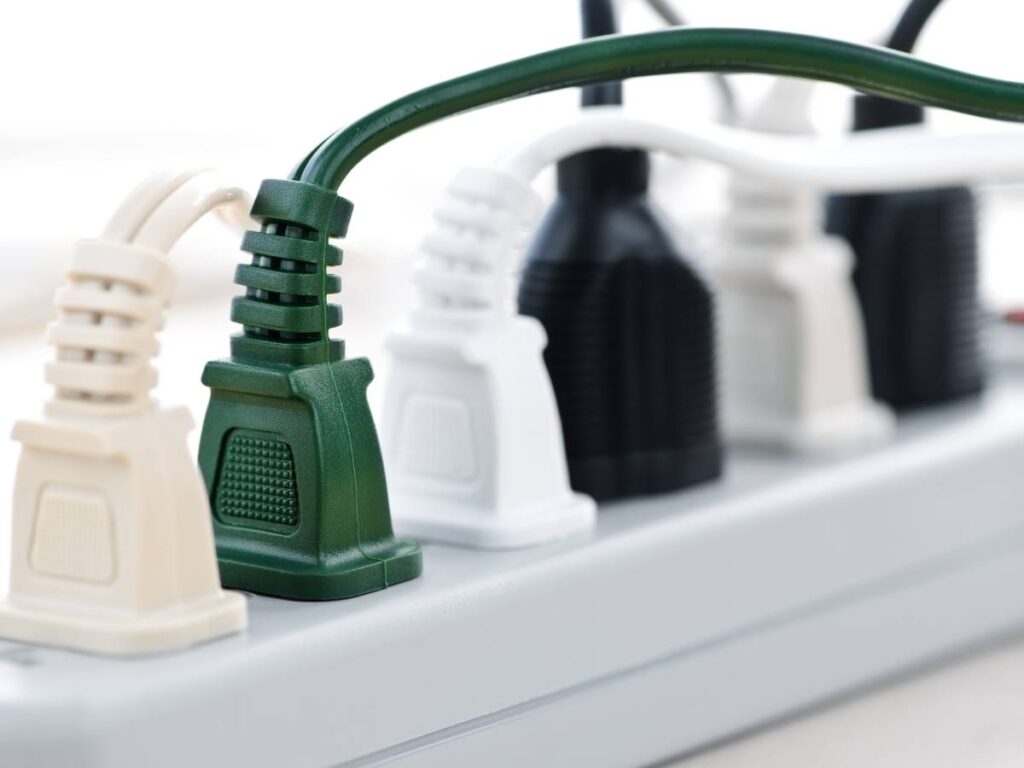Electricity is a vital part of everyday life, from lighting our homes to powering essential devices. However, it also comes with risks if not managed properly. Understanding basic home electrical safety and babyproofing tips can help you avoid household electrical hazards and keep your family safe.
Top-Rated Outlet & Cord Safety Picks
5 Simple Ways to Babyproof Outlets and Electrical Cords
Have young children at home? Taking extra electrical precautions is essential to their safety. Curious hands can quickly find their way into dangerous situations, but these simple babyproofing steps can help create a safer, stress-less home.
- Install Babyproof Outlet Plugs, Covers, or Outlet Plates. Outlet plug covers, sliding safety plates, and outlet cover boxes help access to outlets. These are generally inexpensive, easy to install, and are ideal ways to prevent little fingers from poking into sockets.
- Use Cord Shorteners or Winders. Excess cord length can attract babies who love to pull and tug. Cord shorteners keep cords neat and out of sight and reduce the risk of tripping or pulling down appliances.
- Secure Cords with Cord Concealers. Cord concealers or covers can be attached to walls or baseboards to hide exposed cords and keep them out of reach of curious hands.
- Place Furniture Strategically. Place heavy furniture in front of or around hard-to-cover outlets whenever possible to keep little hands away from outlets.
- Choose Baby-Safe Power Strips. Use power strip covers or specially designed baby-safe strips to block direct access. These products typically come with locking covers that make it difficult for small hands to tamper with plugs.
Pro Tip: Stay Safe in Older Homes
Consider scheduling a home electrical inspection, especially if you live in an older house. Outdated wiring, such as aluminum wiring used in many homes built in the 1970s, can pose serious safety risks and might not handle modern energy demands. Other hazards exist when updating panels and wiring, too, even in newer homes. It’s smart to consult a licensed electrician when adding electrical loads to keep your home and loved ones safe.
More Practical Home Electrical Do’s and Don’ts
These simple electrical safety steps can go a long way in mitigating household electrical hazards, preventing accidents, and providing peace of mind for your home and family.
Electrical Safety Do’s:
- Inspect cords and outlets regularly. Look for frayed wires, cracked outlets, or any signs of wear and tear. Damaged cords can easily cause electric shocks or even start a fire. Remember! Pets sometimes chew on wires, so it’s smart to check if you have furry friends (Christmas Vacation… anyone?)
- Use appliances as intended. Always follow the manufacturer’s instructions and avoid using appliances near water unless they are designed for it.
- Install Ground Fault Circuit Interrupters (GFCIs). These outlets are critical in ensuring safety in wet spaces, such as bathrooms, kitchens, and outdoor areas. They help reduce the risk of electric shock by cutting power when an imbalance is detected.
- Unplug devices when not in use. This simple action saves energy and reduces the chance of accidental shocks, short circuits, and electrical fires.
- Hire a licensed electrician for repairs. DIY electrical work can be dangerous. A qualified professional can ensure your wiring and fixtures meet safety standards.
Electrical Safety Don’ts:
- Overload outlets. Plugging too many devices into one outlet can lead to overheating and increase the risk of fire or shock.
- Run cords under rugs. Covering cords can cause wires to overheat, creating a potential shock, short, or fire hazard.
- Use damaged appliances. If an appliance shows signs of damage, sparks, or has a burning smell, stop using it immediately and have it checked or replaced.
- Touch electrical items with wet hands. Water conducts electricity, so always dry your hands before handling cords, plugs, or switches.
